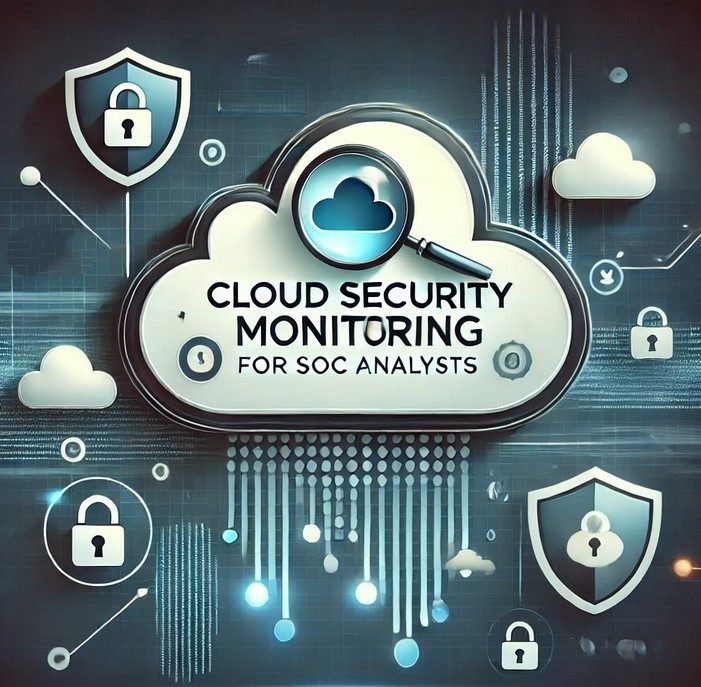As businesses worldwide increasingly adopt cloud infrastructure, ensuring robust security has become essential. Cloud environments offer significant benefits, like flexibility and cost-efficiency, but they also come with unique security risks. Security Operations Center (SOC) analysts play a crucial role in monitoring these environments to detect and respond to threats effectively. Digi9 is dedicated to supporting SOC analysts with cutting-edge strategies and tools tailored for cloud security.
In this blog, we’ll dive into the essentials of cloud security monitoring and the best practices SOC analysts can use to safeguard cloud-native applications.
Understanding Cloud Security Monitoring
Cloud Security Monitoring is the process of continuously observing and analyzing cloud-based systems, applications, and data to detect and respond to security threats in real time. This is especially critical in a cloud environment where traditional monitoring strategies might fall short due to the dynamic and shared nature of the infrastructure.
As SOC analysts monitor cloud environments, they must handle a high volume of data and maintain visibility across diverse cloud services. At Digi9, we recognize that this can be challenging, which is why we equip our analysts with state-of-the-art tools and frameworks that are designed for the complexities of cloud security.

Core Responsibilities of SOC Analysts in Cloud Security Monitoring
SOC analysts have specialized responsibilities in cloud security that go beyond on-premises monitoring. These responsibilities help secure client data, manage compliance, and ensure cloud service resilience:
- Threat Detection: SOC analysts identify unusual activities like unauthorized access, data exfiltration attempts, and signs of malware within the cloud.
- Incident Response: SOC analysts quickly respond to threats, determine their root causes, and develop remediation steps to prevent similar incidents in the future.
- Continuous Vulnerability Management: They regularly assess the cloud infrastructure for vulnerabilities, prioritizing and addressing critical security gaps.
- Compliance Enforcement: Ensuring adherence to regulatory standards like GDPR, HIPAA, and industry-specific requirements is essential to maintaining trust and avoiding penalties.
Key Tools for Cloud Security Monitoring
At Digi9, we prioritize providing our SOC analysts with the right tools to streamline cloud monitoring. Here are some essential tools that enhance our SOC analysts’ capabilities:
- Cloud Security Posture Management (CSPM): Tools like AWS GuardDuty and Azure Security Center automatically scan cloud infrastructure for configuration issues, ensuring compliance and identifying vulnerabilities.
- Security Information and Event Management (SIEM): SIEM tools such as Splunk, Elastic Stack, and Microsoft Sentinel collect and analyze logs, enabling analysts to detect unusual activities across various cloud services.
- Endpoint Detection and Response (EDR): Cloud-specific EDR tools help monitor and protect endpoints by identifying potential threats, allowing SOC analysts to gain deeper insight into endpoint security within cloud environments.
- Network Traffic Analysis (NTA): By using NTA tools, analysts can observe cloud network traffic patterns to detect potential attacks, including DDoS attempts and other network-level threats.
Best Practices for Cloud Security Monitoring
To optimize cloud security, SOC analysts at Digi9 follow these best practices:
- Centralize Multi-Cloud Monitoring: As more organizations adopt multi-cloud strategies, consolidating visibility across all cloud environments (AWS, Azure, Google Cloud) is crucial to prevent security gaps.
- Leverage Automation: Automation in cloud monitoring helps detect threats faster and reduces manual workload. Tools with AI and machine learning capabilities can identify anomalies, detect suspicious patterns, and initiate responses autonomously.
- Adopt a Zero Trust Model: Implementing Zero Trust in cloud security involves continuously validating every user and device, regardless of whether they are inside or outside the network, ensuring that only authorized entities can access sensitive data.
- Maintain Rigorous Access Control: Limiting access to critical data based on roles and permissions helps prevent unauthorized access and minimizes the potential for insider threats.
- Regularly Review and Update Security Policies: Cloud security is ever-evolving, so regularly updating security policies and configurations ensures they align with the latest threat intelligence and compliance standards.
Overcoming Challenges in Cloud Security Monitoring
While cloud security offers numerous advantages, it comes with its share of challenges. Digi9 helps SOC analysts navigate these by focusing on solutions tailored for complex, scalable cloud environments:
- Data Complexity and Visibility: In a cloud environment, data resides in various locations, making it harder to maintain complete visibility. SOC analysts need tools that centralize data monitoring to manage this effectively.
- Expanded Attack Surface: Cloud environments, especially multi-cloud setups, present more entry points for attackers, requiring analysts to monitor these thoroughly.
- Dynamic Compliance Requirements: As data regulations evolve, staying compliant across global and industry-specific standards can be difficult. SOC analysts must ensure continuous monitoring to align with compliance mandates.
Future Trends in Cloud Security Monitoring
At Digi9, we’re constantly evolving our approach to cloud security monitoring by embracing emerging technologies and methodologies. Some of the trends shaping the future include:
- AI-Driven Threat Detection: AI and machine learning are revolutionizing cloud security by identifying complex threats and anomalies that traditional methods might miss.
- Integration of DevSecOps: Incorporating security within development and operations cycles (DevSecOps) enables SOC analysts to address potential vulnerabilities earlier, reducing the risk of threats in production.
- Increased Focus on Compliance Automation: Automation tools that maintain up-to-date compliance checks will reduce the workload for SOC analysts and help businesses avoid costly compliance violations.
Conclusion: Partner with Digi9 for Comprehensive Cloud Security
At Digi9, our SOC analysts are trained and equipped to handle the complex challenges of cloud security monitoring. With our innovative tools and best practices, we empower businesses to operate securely and confidently in the cloud. Whether you’re just starting your cloud journey or looking to strengthen your existing security posture, Digi9 is here to support you with tailored solutions designed for today’s digital landscape.
Ready to Enhance Your Cloud Security? Contact Digi9 to discover how our cloud security solutions can protect your assets and keep your business resilient.


